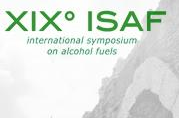10 October 2011 - 14 October 2011
Verona, Italy
EU BeWhere presented at ISAF XIX
The European Union has set a 10% target for the share of biofuel in the transportation sector to be met by 2020. To reach this target, second generation biofuel is expected to replace 3 to 5% of the transport fossil fuel consumption. This study investigates the potential of second generation biofuel economically feasible in Europe by 2020 under different scenarios. A techno-economical, geographically explicit model is used. The model determines the optimal locations of biofuel production plants by minimizing the cost of the entire biofuel supply chain. Three biofuels are compared in the analyses: ethanol, methanol and Fisher-Tropsch diesel (FTD), all produced from residual woods. The results show that in order to reach an expected 3% second generation biofuel target, a carbon tax or a biofuel support must be applied. The carbon tax would influence the emission reduction to a higher degree than the biofuel support, at the same biofuel share level. The major woody biomass and biofuel producer is the region around the Baltic Sea. Italy would be one of main biofuel importers.

MODELS AND DATA


